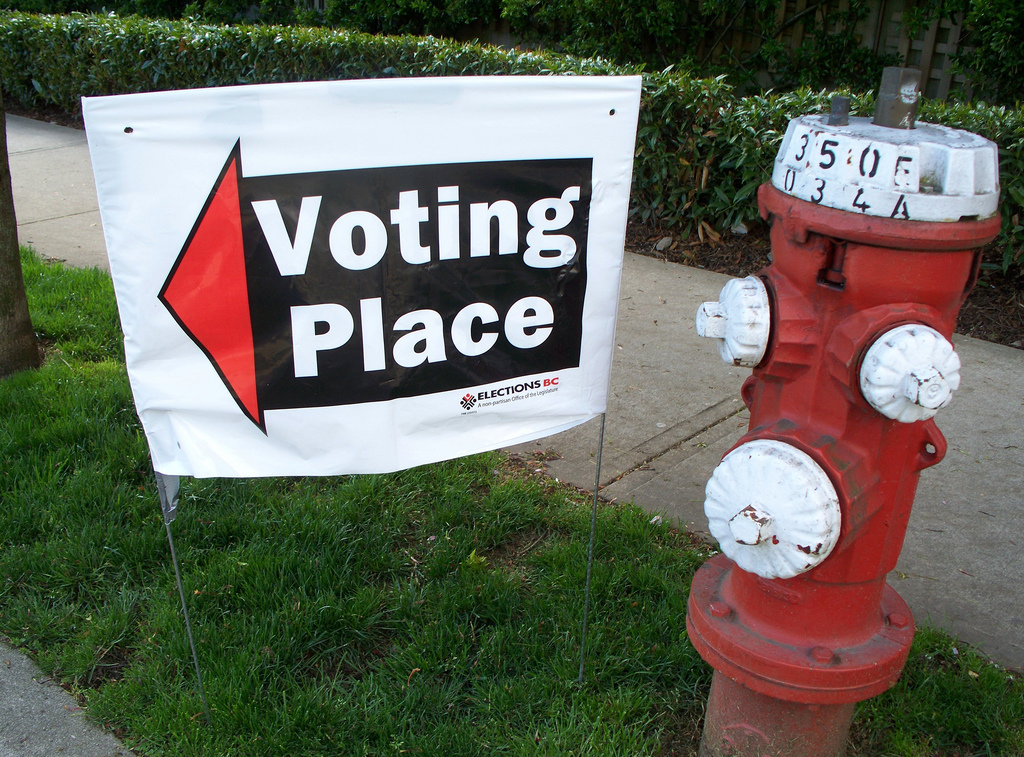British Columbia will be holding a referendum on electoral reform in November. B.C. voters are asked two questions.
The first question asks whether B.C. should keep its first-past-the-post system or change it.
The second question asks which of three different proportional representative (PR) options British Columbians should choose: dual member proportional (DMP), mixed member proportional (MMP), or rural-urban proportional representation, where urbanites elect representatives using single transferable vote and rural voters elect representatives using mixed member proportional.
One important criteria for a fair electoral system is resistance to undo influence by power groups. Under our current first-past-the-post electoral system there is considerable influence exerted by corporate and other groups on political parties. Through political contributions, exchange of favours and lobbying, policy and legislation can be disproportionately influenced.
For example, Bill C-38, the Conservative omnibus budget bill, which vandalized most of our environmental regulations and repealed the Kyoto Protocol Implementation Act, reflected the shopping list of requests made by the Canadian Association of Petroleum Producers (CAPP), in a letter sent to the Harper government in 2011.
Undo influence indeed!
Most proportional representational electoral systems have built-in resistance to influence by power groups. An organization like CAPP would have to seek influence with more than one or two mainstream political parties. They would have to spread their political donation dollars thinner. And how likely is it that a group like CAPP could conspire with the minority or coalition governments which are often the result of elections using PR?
Much rides on the continuation of an unfair electoral system like first past the post. Many influencers see real democracy as a barrier to their aspirations. It is not a surprise to see them organized against electoral reform in B.C. Nor is it a surprise to see them colluding with mainstream political parties to prevent electoral reform.
Influencers claim to be concerned about democracy. In a similar fashion, foxes express concern about the well-being of hens.
Independent Contractors and Businesses Association (ICBA) have asked the courts to put an injunction on the referendum. They have also mounted an anti-electoral reform advertisement campaign, spreading misinformation, slandering reformers and ramping up fear.
Jim Shepard, former CEO of CANFOR (a lumber and wood corporation) and adviser to the Liberal Leader Christie Clarke, launched a group known as KNOWB4UVOTE.COM Society. They have a website and have purchased full-page ads claiming the “David Eby is trying to manipulate you.” David Eby is B.C.’s attorney general.
On Saturday September 22, in response to the campaign of misinformation against proportional representation, Fair Vote Canada launched a fact-checking website, Proportional Representation Fact Checker Site. Within hours the website was shut down by an amateur hacker. Fair Vote was able to get the site back up quickly only to have it hacked a second time in a denial-of-service attack. Their IT staff have identified the attack as “sophisticated.”
Professional hackers capable of sophisticated hack jobs are very expensive. Only those with deep pockets can afford them.
Fair Vote Canada is a grassroots organization dependent on volunteers and with limited funding. My husband and I donated to them today.
Here is the link to Fair Vote Canada.
Here is another link should you wish to donate.
P.S. It is 18:06 on Wednesday September 26, 2018. As I write this, the Proportional Representative Fact Checker site just went down again.
Yukon is full of artists, thinkers, eccentrics and rabble-rousing political trouble makers. From the windows of her Acting Out Studio, Linda Leon observes the view from North.
Photo: Dennis Sylvester Hurd/Flickr
Help make rabble sustainable. Please consider supporting our work with a monthly donation. Support rabble.ca today for as little as $1 per month!




